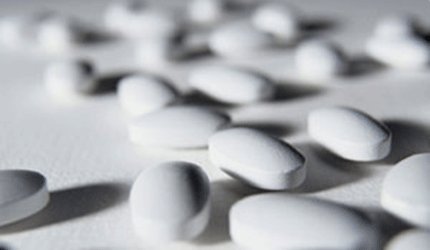
Home » FDA Finds Two Concerta Generics No Longer Equivalent to Brand
FDA Finds Two Concerta Generics No Longer Equivalent to Brand

The FDA said two generic versions of Janssen’s attention deficit hyperactivity disorder drug Concerta may not be therapeutically equivalent to the brand, a decision that could result in the products being withdrawn.
The agency’s recent decision on products made by Mallinckrodt and Kudco follows the release of revised draft guidance on bioequivalence testing for Concerta (methylphenidate HCl). The FDA gave the drugmakers six months to confirm bioequivalency of their products using the revised guidance, or voluntarily withdraw the products from the market, a move that drew a lawsuit threat from Mallinckrodt.
While the companies’ products can currently be prescribed, the FDA is recommending that pharmacists not automatically substitute either generic drug for Concerta.
The FDA reached its conclusion following a review of previously submitted data and adverse event reports. The drug is supposed to be released in the body over a 10 to 12-hour period, but the Mallinckrodt and Kudco products delivered the drug at a slower rate during the seven to 12-hour range, the agency said.
“The diminished release rate may result in patients not having the desired effect,” FDA added.
The reviews were prompted by reports of efficacy problems after each drug was launched, which for Mallinckrodt was December 2012 and Kudco July 2013. Between May 2013 and June 2014, the agency found efficacy problems in nearly 200 adverse event reports on Mallickrodt’s generic and more than 100 reports of Kudco’s product.
The agency said it found no problems with the third generic Concerta manufactured by Janssen.
Mallinckrodt said Thursday it has been trying to meet with FDA to discuss the decision, but has been rebuffed. The Irish drugmaker is considering legal action if the FDA’s posture doesn’t change, and said the decision wasn’t supported by sound scientific evidence.
Since its launch, Mallinckrodt’s generic has been prescribed more than 88 million times, and the company said it only received 68 adverse events related to lack of efficacy. The drugmaker also warned that the decision could lead to potential shortages. The only approved generics on the market are from Janssen, Mallinckrodt and Kudco.
The FDA’s review of the Concerta generics does not affect other methylphenidate HCl extended release products, including generic versions of Novartis’ Ritalin LA (methylphenidate HCl).
Still, the FDA has hinted that manufacturers of generic ADHD drugs aren’t off the hook. Studying methylphenidate HCl extended release products is a priority under GDUFA. Last month, the FDA commissioned a bioequivalence study in healthy adults and a pharmacokinetic and pharmacodynamics study in children with ADHD. The bioequivalency study is expected to finish by April 2015 and the PK/PD study by September 2017.
Other drugmakers who experienced bioequivalency issues have pulled the affected products from the market. Last year Watson withdrew its 300 mg generic of Valeant’s antidepressant Wellbutrin XL (bupropion HCl) after studies showed it wasn’t therapeutically equivalent. In 2012 Impax and Teva removed its copycat Wellbutrin for the same reason.
Kudco was not available for comment as of press time. — Robert King
Originally appeared in Drug Industry Daily, the pharmaceutical industry’s number one source for regulatory news and information. Click here for more information.
Upcoming Events
-
25Apr
-
07May
-
14May
-
30May
